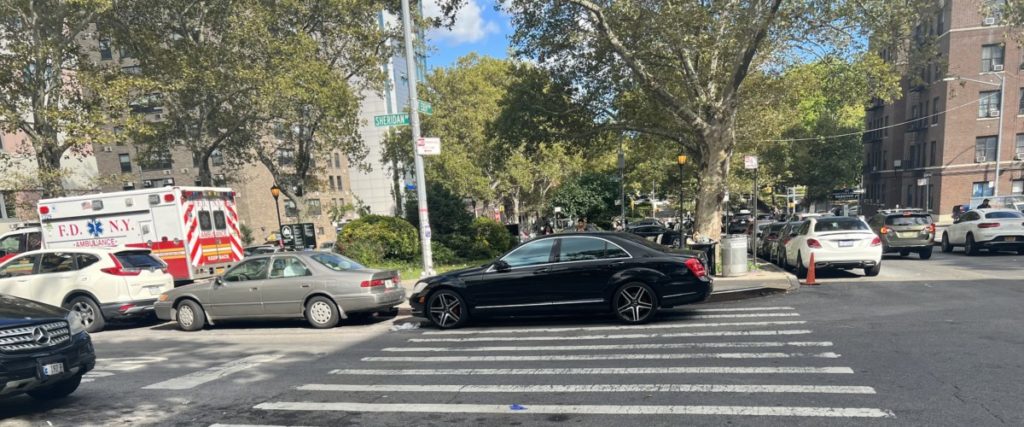
New York City remains steadfast in its position that it did not violate Title II of the American Disabilities Act in the pedestrian pathway class action lawsuit filed by Disability Rights New York on behalf of Bronx residents Carlos and Stephanie Diaz.
In its response to the lawsuit, the city stated the Diazes’ complaint of not being able to access their Mt. Eden Mall neighborhood because people parked illegally on their front street, did not include enough harm or injury to warrant getting relief from the court. It also argued that the Diazes neighborhood is generally accessible most of the time and asked the case be dismissed.
“Nor does the Complaint plead how the alleged obstructions rise to the level of a violation of the ADA and the Rehabilitation Act. Instead, the Complaint merely generally alleges that a problem of accessibility to the pedestrian pathways in the Mt. Eden Mall area violates the ADA,” the city’s response stated.
The court filing comes after the federal government submitted a brief in the Diazes’ lawsuit that said the city’s interpretation of the American with Disabilities Rights was wrong and it must provide clear pedestrian pathways to all residents in the Mount Eden neighborhood of the Bronx.
Carlos Diaz who has cerebral palsy and Stephanie Diaz who has loss of vision due to degenerative disease filed the lawsuit in June saying they were not able to access their Mount Eden neighborhood because of illegal parkers and placard abusers.
This worsened after the department of transportation granted special Covid-19 placards for healthcare workers in 2020.
The city now argues the Mt. Eden Mall neighborhood is a large area and the Diazes’ complaint did not document very specifically what type of obstruction they encountered, where they encountered it, how frequent it was and how long it lasted for it to be a violation of the ADA.
“Plaintiffs merely alleged general conditions and obstructions on the pedestrian pathways in the general Mt. Eden Mall area without specifying, at the very least, their locations within the area that includes many blocks, avenues and intersections,” their dismissal filing claims.
Stephanie Diaze shared with the court in June that she and her husband had submitted 25 311 incident reports regarding illegal parking and recorded at least 45 illegally parked vehicles in front of curb cuts January through March 2021 with specific locations on where the incidents took place.
The city said that Diaze’s argument is not specific enough on pedestrian pathway obstructions and what harm they caused. They reiterated the Covid-19 healthcare parking permits mentioned in the case expired and the argument of it contributing to illegal parking is now “moot”.
According to the city’s filing, under the New York Administrative Code, conditions of sidewalks are the adjacent properties owners responsibility. They stated not all the blocked pedestrian pathways mentioned in the complaint are specific enough to determine if the obstructions fall within the city’s pathway program.
“Thus, viewing the City of New York’s pedestrian pathways in their entirety. The Complaint, which at best alleges a few random non specific grievances that even if true do not rise to the level of ADA violations, fails to state a claim under the ADA or the Rehabilitation Act, and these claims should be dismissed.” the filing stated.
Disability Rights New York et al v. City of New York et al is currently awaiting the judges ruling on dismissal.

